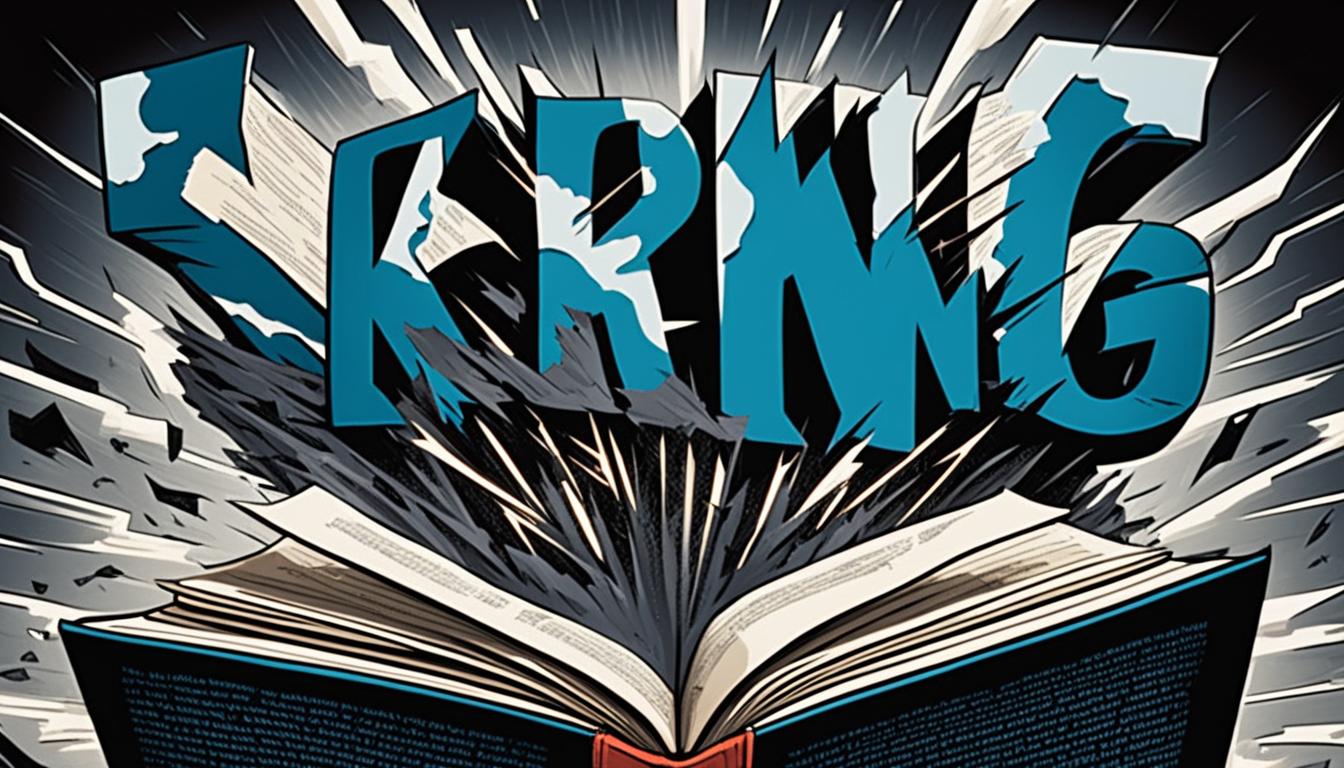Stephen King, the prolific author behind some of the most iconic horror novels of our time, has recently been embroiled in a controversy surrounding his use of the N-word in his literary works. This controversy has sparked a broader conversation about racial sensitivity and representation, with critics and fans alike weighing in on the implications of King’s language choices. In this article, we will delve into the Stephen King N-word controversy and explore its impact on discussions surrounding racial sensitivity in literature and media.
Stephen King’s Prolific Writing Career
Stephen King is one of the most successful and prolific writers of our time. He has authored more than 60 novels, numerous short stories, and non-fiction works. With a career that spans over four decades, King has had a profound influence on the literary world.
King’s writing career started in the early 1970s with the publication of his first novel, Carrie. The novel was a critical and commercial success, paving the way for King to become a full-time writer. Over the years, he has published several bestsellers, including The Shining, It, and The Green Mile. His works have been adapted into TV shows, movies, and even comic books.
King’s writing style is known for its vivid imagery, intricate plots, and well-developed characters. He also has a keen sense of horror, which has earned him the title of “The Master of Horror.” His works often explore themes of the supernatural, death, and the human psyche.
King’s influence on the literary world is undeniable. He has inspired countless writers and has helped to shape the horror and suspense genres. His success has also paved the way for other authors to pursue writing as a full-time career.
Overall, Stephen King’s writing career is a testament to his talent, creativity, and perseverance. His works continue to captivate and terrify readers, solidifying his place in literary history.
The N-Word in Literature: Historical Context
The N-word has a long and complex history in literature, with its usage dating back to the 19th century. During this time, it was commonly used to refer to Black individuals and was often used in a derogatory manner.
Throughout the 20th century, the N-word continued to be prevalent in literature, particularly in works focused on race and racism. As social and political changes occurred, some authors began to challenge the traditional usage of the N-word, utilizing it in ways that sought to subvert its negative connotations.
In recent years, the N-word has become a contentious issue, with many questioning its continued usage in literature. Critics argue that its negative historical context and impact on Black individuals outweigh any artistic merit it may hold. Others maintain that the N-word can be used in literature in ways that call attention to the realities of racism.
Ultimately, the debate over the N-word in literature highlights the complex intersection of history, language, and representation. As society continues to grapple with issues of race and racism, it is likely that the conversation around the N-word will continue to evolve and shift.
Stephen King’s Controversial Use of the N-Word
Stephen King, a prolific author known for his horror and suspense novels, has included the N-word in several of his works. Some of the most contentious examples include its use in his novel “It,” which has sparked considerable backlash and criticism.
Critics argue that King’s use of the N-word perpetuates harmful stereotypes and reinforces the historical oppression of Black individuals. They argue that such language has no place in literature or any form of media, and that its inclusion only serves to perpetuate systemic racism.
However, others argue that King’s use of the N-word is meant to reflect the realities of the time periods in which his novels are set, and that to censor or remove such language would be an inaccurate portrayal of history.
The debate over the use of the N-word in King’s works is ongoing and complex, with valid arguments on both sides. However, it is clear that this controversy has had a significant impact on discussions surrounding racial sensitivity in literature and media.
Public Reactions and Criticisms
Stephen King’s use of the N-word has generated significant controversy and sparked varied reactions from the public. While some readers defend King’s use of the word as historically accurate and reflective of the societal context of his novels, others criticize it as insensitive and unnecessary.
Many scholars and social commentators have weighed in on the debate, with some arguing that King’s use of the word perpetuates harmful stereotypes and reinforces systemic racism, while others see it as a legitimate artistic choice that should not be censored.
Regardless of individual perspectives, it is clear that King’s use of the N-word has prompted important discussions about racial sensitivity in media and literature. The controversy has also highlighted the need for greater representation and diversity in publishing to ensure that a wider range of voices and perspectives are included in the literary world.
Racial Sensitivity in Literature and Media
The Stephen King N-word controversy has brought to light broader conversations around racial sensitivity in literature and media. Many argue that the portrayal of racial slurs and stereotypes can have harmful effects on marginalized communities. Others contend that artistic works have the right to depict the realities of the world, even if it means including insensitive language.
At the same time, it is important to acknowledge the power dynamics at play in the creation and consumption of literature and media. When predominantly white authors and creators depict marginalized groups, they must do so with care and respect, taking into account the potential impact on real-world individuals.

As society continues to grapple with issues of systemic inequality and underrepresentation, the conversation around racial sensitivity in literature and media remains a pressing topic. It is critical that industry professionals reflect on their practices and the impact of their work, moving towards more inclusive and empathetic storytelling.
Impact on Stephen King’s Reputation
The Stephen King N-word controversy has had a significant impact on his reputation as a writer and public figure. While many have praised his ability to confront difficult topics in his work, others have criticized his handling of sensitive racial issues.
Stephen King’s reputation has been affected both positively and negatively by the controversy. Some readers and critics have applauded him for his willingness to tackle controversial topics head-on, while others have accused him of insensitivity and perpetuating harmful stereotypes.
The controversy has also highlighted larger issues within the publishing industry and sparked discussions about the need for increased diversity and representation. As a result, Stephen King’s reputation may continue to be impacted by his handling of sensitive topics and his role as a prominent figure in the literary world.
Conversations on Free Speech vs. Responsibility
One of the key debates stemming from the Stephen King N-word controversy is the ongoing discussion of free speech versus responsibility in artistic works. While some argue that writers should have the freedom to use any language they choose, others contend that such language carries a responsibility to consider the impact of those words on readers and society as a whole.
Many scholars and commentators have noted that the use of racially sensitive language in literature and other media can perpetuate harmful stereotypes and contribute to systemic discrimination. However, others have argued that efforts to censor or limit artistic expression can stifle creativity and inhibit important conversations about race and social justice.
The Stephen King N-word controversy has sparked difficult but necessary conversations about the role of free speech in society and the responsibilities that come with using language that carries significant historical and cultural weight.
Cultural and Societal Ramifications
The Stephen King N-word controversy has had significant cultural and societal ramifications, as it has forced many to confront the ongoing impact of racial language and stereotypes. The controversy has sparked a renewed conversation about the importance of representation in literature and media, as well as the need for greater inclusivity across all aspects of society.
At the same time, the controversy has highlighted the complex and often fraught nature of discussions around race. While some argue that the use of the N-word in literary and artistic works is necessary for authenticity and free artistic expression, others contend that such language perpetuates harmful stereotypes and reinforces systemic discrimination.
Overall, the Stephen King N-word controversy underscores the importance of ongoing dialogue and education around racial sensitivity and representation. Only by continuing to engage with these issues can we work towards a more just and inclusive society.
The Call for Increased Diversity in Publishing
The Stephen King N-word controversy has illuminated the need for increased diversity and representation in the publishing industry. Many have criticized the lack of diversity in publishing, which often results in a narrow perspective and perpetuates harmful stereotypes.
It is crucial for publishers to actively seek out and promote diverse voices, including those from marginalized communities, to ensure a more accurate and inclusive representation of the world we live in. By doing so, publishers can help to mitigate the harm caused by the use of racially insensitive language and promote a more nuanced and empathetic understanding of the world.
While progress has been made, there is still much work to be done. The industry must continue to make concerted efforts to diversify its workforce and expand the range of voices it represents to ensure that all readers are able to see themselves reflected in the stories they read.
Conclusion
In conclusion, the Stephen King N-word controversy remains a contentious issue that has sparked ongoing debates about free speech, responsibility, and racial sensitivity in literature and media. While some argue that authors should have the freedom to use whatever language they choose, others stress the harmful impact that racially charged words and stereotypes can have on readers and society as a whole.
The controversy has also prompted discussions about the need for increased diversity and representation in the publishing industry, with calls for greater inclusivity and opportunities for marginalized voices.
As Stephen King continues to be one of the most influential and popular writers in the literary world, his controversial use of the N-word highlights the importance of ongoing conversations surrounding race, representation, and inclusivity in artistic works and beyond.



